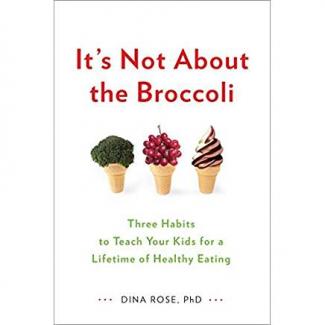The following resources can help parents with problems big and small, as they break generational patterns and heal, strengthen their relationships with their children and learn new ways to raise their children with calm, love and connection.
Prevention / Resilience / Parent well-being / Parent-child relationships:
Greenspan Floortime Approach - Dr. Stanley I. Greenspan was a renowned expert on childhood development and autism. He urges parents to enjoy interactions and be playful, offering fascinating information about how important emotional development is to intellectual development. "Dr. Greenspan determined that it was our emotional health and relationships that drive our behavior, thinking and communication. Because so many professionals focus on surface behaviors and symptoms, never addressing the core components of a child’s emotional and cognitive health, he wanted to make his work available for all children. Floortime is both an intervention for children with special needs and a general support for healthy child development. Floortime meets children where they are and builds upon their strengths and abilities through creating a warm relationship and interacting. Floortime is only Floortime if the child is Relating, Communicating and Thinking." See the Greenspan Floortime Approach website and for short video explanations of the approach, see The Learning Tree interactive page (allow a few moments for the videos to load).
Shanker Self-Reg Overstressed? Dr. Stuart Shanker says: "There is no such thing as a 'bad kid'. In Self-Reg we pause to ask, 'Why am I seeing this behavior?' and 'Why now?' before we react." In his Self-Reg book and with abundant free information on the website, Dr. Shanker helps people of all ages think, act and feel better.
Dr. Bruce D. Perry - in this inspirational one-hour video, Dr. Perry explains 'big picture' societal factors in social and emotional development in infants and young children. He says: "We have slowly been neglecting two of our most powerful biological gifts: the power of relationships and the brain’s malleability in early childhood."
Community Healing Network - CHN's mission: "to mobilize Black people across the African Diaspora to heal from the trauma caused by centuries of anti-Black racism, to free ourselves of toxic stereotypes, and to reclaim our dignity and humanity as people of African ancestry."
Life Teachings - online program by Dr. Elana Miller. "Get practical tools to feel happier, less stressed, and more joyful. earn new methods to cope with stress and anxiety, get access to worksheets and video lessons, and connect with a healing community outside of your inner circle." Modest monthly fee for this online program. Dr. Miller says: "I’m an integrative psychiatrist and 2x cancer survivor passionate about helping people use holistic approaches to reduce anxiety, cultivate joy, and live connected and meaningful lives."
SMART Recovery - Self-Management and Recovery Training. A nonprofit organization offering free information and group meetings (including online), their mission: "To empower people to achieve independence from addiction problems with our science-based 4-Point Program." Among the problems: alcohol, eating disorders, marijuana, gambling, prescription drugs, heroin, sex addiction, smoking. They offer a self-empowerment approach, with peer support for young adults: "no blame, no shame." Family and friends can find help here, too - and people struggling to set boundaries for all kinds of reasons, whether or not addiction is an issue. From their website: "In SMART we focus on learning coping skills that work well short- and long-term. We base our ideas on what addiction science has shown to be effective. We have adapted these ideas into SMART’s tools for change. We are not much concerned with the past, except to learn from it. We focus on present-day events and the causes of self-destructive behaviors. We concentrate on what to do about them to achieve a positive lifestyle change, especially in the areas of our lives that are related to harmful addictive behavior."
Karen Levine, PhD offers free downloads on her website about how to playfully help children overcome anxiety and fears: "Treating fears and phobias using interactive play, humor and unbundling combined with gradual incorporation of the feared thing." See also the recording of a radio show about Halloween fears. Dr. Levine also offers online telehealth consultations and counseling to children and families.
Hands Free Mama - inspiration and encouragement to let go of stress and perfectionism so you can focus on the things that really matter.
No Bad Kids - course and book by this title by Janet Lansbury.
Little Hearts / Gentle Parenting - "Let's raise kids who won't have to recover from their childhoods" says L.R. Knost. She offers great guidance for all parents in the book The Gentle Parent - and for countering messages about spanking and "Christian parenting" see the book Jesus, the Gentle Parent.
Hand in Hand - this great nonprofit organization helps parents connect and support each other; their tools can also help with a parent's traumatic stress (see "Using These Tools.." article below).
Celebrate Calm - Kirk Martin found himself repeating his father's harsh parenting, and realizing that he needed a different way, he found himself helping other families. He and his son Casey have helped hundreds of thousands of parents.
Raising Teens - from the Harvard School of Public Health, Center for Health Communication, this free report (available online as a pdf download) identifies 5 basics for parents: Love and Connect - Monitor and Observe - Guide and Limit - Model and Consult - Provide and Advocate.
Raising Teens: parent narratives. Do you ever read parenting advice from experts and wonder how to actually put the recommendations to use in real life? We asked parents to tell us how they have acted on each of the 5 basics for parents identified in the Harvard report.
Thinking About Parenting - People often think of parenting in terms of the effect on the child. But what is the experience of raising a child like for a parent? What factors help or harm? Learn more about the theory developed by Alice van der Pas to help us understand parents' experiences.
Learning from a Difficult Child - one mom's reflections on her struggles and on what she learned as she loved and lived with her strong-willed, active and impulsive son. And here are her Other Thoughts About Parenting a Difficult Child.
Screens / media
For reviews, guidance, explanations ("Parents Need to Know") about movies, games, and various tech: Commons Sense Media.
Claudia M. Gold, MD gives wise advice in her blog post on screen use / screen addiction and parenting, Social Media Addiction: Beyond 'Just Say No'.
New York Times editor KJ Dell'Antonia writes about a Pew Research report, Teens, Technology and Friendships as well as another report on parents' actions - and more importantly, conversations with their teens: Parents, Teens and Digital Monitoring. Dell'Antonia's articles also include links to other sources and this observation by Dr. Marion K. Underwood: “Children who felt like their parents were monitoring their activity online were noticeably less distressed by online conflict,”
Suicide Prevention Resource Center
National Suicide Prevention Helpline: 1-800-273-TALK (8255)
About Spanking
Scientific evidence shows the harm of spanking, yelling, and shaming. While all the resources can help parents learn and grow, these specifically address spanking:
Corporal punishment bans and physical fighting in adolescents: an ecological study of 88 countries
The American Academy of Pediatrics published a major policy statement in November 2018. They say: "Research has shown that striking a child, yelling at or shaming them can elevate stress hormones and lead to changes in the brain's architecture."



